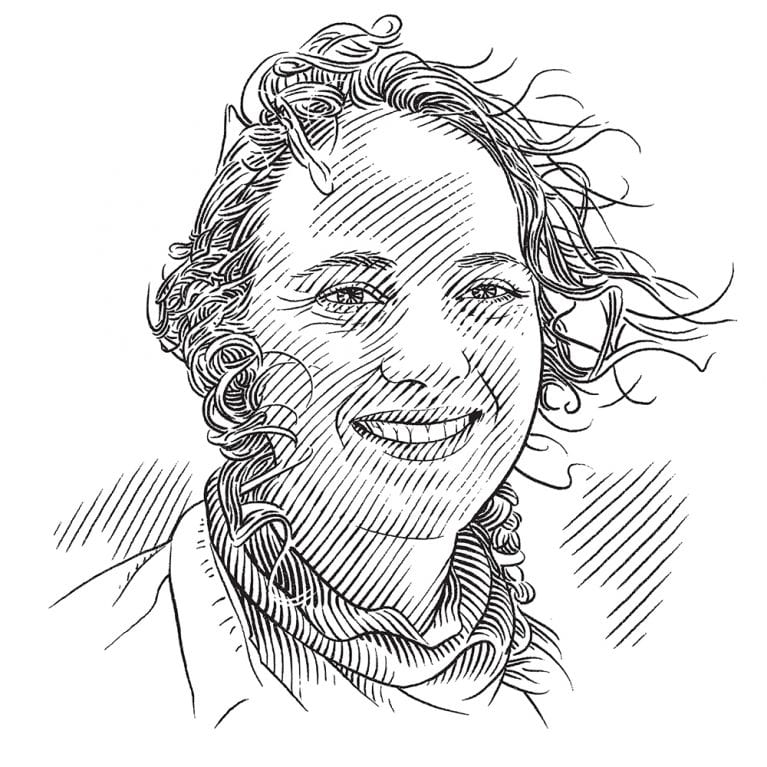Emily Moxham

Who I am
I have always loved water. Growing up on a farm in the interior of South Africa means that swimming in dams and walking along the river formed a large part of my childhood memories. However, our location and the responsibilities of farming prevented my family from having much involvement with the ocean. This changed drastically one windy day in 2010 when I first sailed on the sea. The power of the wind immediately freed me from day-to-day concerns, while the infinity of the ocean opened my mind to the opportunities and experiences that lay ahead. As a young student I was hooked – and I hadn’t even looked below the surface! Since then, I have become passionately involved in sailing and embarked on a degree in ichthyology. The ocean is now my sanctuary, learning about it has become an obsession and helping to preserve it is a lifelong goal.
Where I work
I am registered for an MSc degree at Rhodes University in Grahamstown, South Africa, and will be working closely with my project supervisors Dr Paul Cowley (South African Institute for Aquatic Biodiversity), Dr Rainer von Brandis (SOSF D’Arros Research Centre) and Dr Jude Bijoux (Seychelles Fishing Authority). Although I am based in Grahamstown, the field work for my Master’s research will take me to the pristine tropical paradise of St Joseph’s Atoll in the Seychelles.
Having just begun my Master’s, I have yet to discover the environment in which I will conduct my research. However, from what I have read I know that a great deal of nature remains undisturbed by human activity at St Joseph’s Atoll. Working in this environment will provide me with a perfect opportunity to investigate the behaviour of my study subject, bonefish of the genus Albula, in its natural habitat.
I have seen images of beautiful beaches and blue, crystal-clear water, and I have heard of storms and wind and rough seas. Postcard-pretty or not, it all sounds like paradise to me! I am prepared for long hours in the sun, wind and rain, and am excited and equipped to experience this environment. I also look forward to collecting and analysing data, as well as sharing ideas with my co-workers. Although this may sound boring, it is often the most exciting part of research, as findings become apparent and knowledge and creativity are tested. I am ecstatic about the opportunity to experience this life at first hand.
What I do
The Save Our Seas Foundation is enabling me to visit St Joseph Atoll and D’Arros Island to conduct research on the behavioural and trophic ecology of the bonefish, which is an important tourism fishery species in Seychelles and elsewhere in the world. It is abundant at tropical atolls such as St Joseph and forms a vital link in the food chain. This link between predator and prey connects and balances top predator species, such as sharks and barracuda, with invertebrates and crustaceans of the ocean floor.
By means of passive acoustic telemetry, we will be tracking the movements of bonefishes in space and time, thus gaining insight into how they use their habitat. We will investigate factors such as where they spend their day, where they forage and where they spawn, as well as how cycles such as those of the tides and moon may influence their movements. An array of acoustic receivers deployed in and around St Joseph’s Atoll is currently being used to track a number of other species, including sharks and stingrays.
In addition to the telemetry research, I will conduct gastric lavage on bonefishes to investigate their food habits and gain better insight into their trophic ecology. This study will be the first of its kind conducted on the bonefish in the Indian Ocean. The findings of this research will contribute towards a better understanding of multi-species interactions and ultimately the ecology of the St Joseph Atoll, and will help fisheries managers to make informed decisions about laws and regulations that will protect bonefish and conserve stocks.
